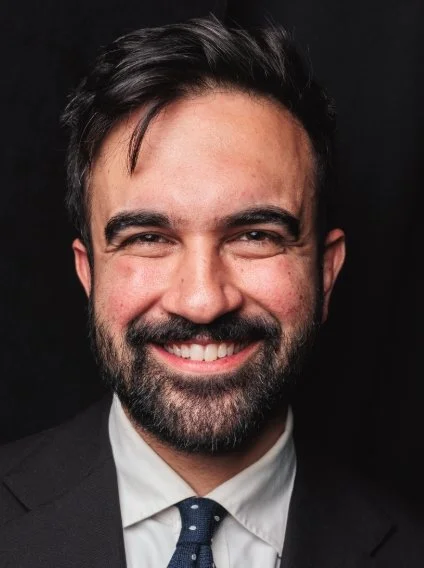Redrawing the Boundaries of Personhood: U.S. Immigration, Institutional Intimidation, and Democratic Backsliding in 2025
In 2025 the United States finds itself in a profound constitutional stress test. The administration of President Donald Trump has launched a set of immigration and security initiatives that go far beyond routine policy adjustments. By labeling migrants “alien enemies,” invoking eighteenth‑century wartime laws to deport hundreds without hearings, and outsourcing detention to a foreign mega‑prison, the federal government is redefining who is recognized as a rights‑bearing person under U.S. law. At the same time it is punishing media outlets, law firms, and universities that resist this agenda. These moves have triggered alarm among judges, the American Bar Association, civil‑rights groups, and international partners who see an executive branch testing the outer limits of its power. This essay examines the core elements of that shift: the language of dehumanisation, the erosion of due process, the intimidation of watchdog institutions, and the geopolitical realignment that accompanies them.
Language as Policy: From “Person” to “Alien Enemy”
Rhetoric is never neutral in politics; in immigration it can become operationalised into law. Early in 2025 the administration revived the term “illegal alien” in all federal guidance and described incoming migrants as an “invasion,” framing border enforcement as an act of national defence rather than a civil regulatory function. The discursive step prepared the ground for the legal one: mass classification of non‑citizens as wartime threats. Such language blurs the constitutional line that normally shields any person on U.S. soil—citizen or not—from arbitrary state action. When a population is rhetorically stripped of individual identities and portrayed as a collective menace, it becomes easier to skip the painstaking work of case‑by‑case justice.
The Alien Enemies Act and Mass Deportations
On 15 March the President invoked the 1798 Alien Enemies Act, a statute last used during World War II, to deport 238 Venezuelans in a single day. They were flown directly to El Salvador’s Terrorism Confinement Center without full hearings, lawyers, or even verified gang affiliations. Two weeks later the Supreme Court upended one such removal, ordering the government to return Kilmar Abrego García—a long‑time Maryland resident with a valid protection order—after finding his deportation “illegal” and unanimous in violating due‑process guarantees. Rather than concede error, officials sought to delay compliance and publicly attacked the district judge who first blocked the flights. The episode shows how a rarely used emergency law can become a fast‑track around the immigration courts, subject only to belated judicial rescue missions that rely on extraordinary writs.
Even after the Court’s rebuke, Homeland Security continues to issue notices of imminent removal under the same law, prompting fresh emergency motions by the ACLU. The pattern is clear: the executive declares a security emergency, labels targeted migrants as non‑persons, and dares the judiciary to stop it before planes take off.
Outsourcing Detention to El Salvador
The partnership with President Nayib Bukele extends the logic of de‑personhood. Under a bilateral deal Washington pays San Salvador roughly six million dollars to warehouse U.S. deportees in its new forty‑thousand‑bed complex. Lawyers have been denied entry; habeas petitions in El Salvador’s supreme court languish without response. Rights groups note that inmates have effectively disappeared into a system where local courts lack independence. Outsourcing detention achieves two things at once: it removes deportees from the protective reach of U.S. judges, and it aligns Washington with a regional strongman who rules under a rolling state of emergency. For the Bukele government, the arrangement brings foreign cash and international validation of its hard‑line model. For the United States, it offers a place to send people fast, sidestepping domestic scrutiny.
Domestic Due‑Process Erosion Beyond the Border
The denial of hearings is not confined to those labelled gang members. In March immigration authorities purged thousands of international students from the SEVIS database, cancelling F‑1 status over minor infractions such as traffic citations. Nearly forty students reported visa revocations; some were detained, others faced sudden deportation proceedings even though no criminal charges existed . Federal judges in Michigan and New York issued emergency stays, calling the policy “arbitrary” and lacking the most basic notice requirements. Yet each case must now be litigated individually, placing the burden on students—and their universities—to claw back status that was revoked with a mouse‑click.
This administrative blitz illustrates a broader point: once the presumption of personhood is weakened, entire classes of residents can lose legal standing overnight, turning the courts into triage centres rather than forums of routine justice.
Retaliation Against the Press
A functioning democracy relies on an adversarial press to expose state overreach. The White House has instead turned media access into an instrument of reward and punishment. When the Associated Press refused to adopt the President’s preferred geographic renaming of the Gulf of Mexico, officials expelled AP from the small press pool. A district judge deemed the move “brazen” retaliation and ordered immediate reinstatement, yet the administration responded by rewriting the entire pool system in a way that still excluded the wire service. The attempt to out‑maneuver a court injunction signals the degree of executive contempt for institutional checks. Reuters and Bloomberg, collateral damage in the new rule, have joined the protest, underscoring that the goal is not narrow discipline but broader message control.
Intimidation of the Legal Profession
Next in the line of fire are the lawyers who litigate against these policies. In March the American Bar Association issued a rare public warning that government officials were targeting judges for impeachment and punishing firms that represent unwanted clients. Shortly afterward the White House directed the Justice Department to seek sanctions against attorneys who file “meritless” immigration suits, a subjective standard that can be invoked whenever the government loses. Such directives chill advocacy: firms weigh the risk of losing security clearances or federal contracts before accepting clients. By menacing the very actors who keep the courts accessible, the administration seeks to tilt the playing field away from adversarial adjudication toward uncontested executive discretion.
Universities Under Siege
Higher education has become another front in the campaign to reshape personhood and dissent. After pro‑Palestinian protests at Columbia University, the federal government froze four hundred million dollars in research grants and demanded policy concessions, including the expulsion of student activists and the creation of a campus police unit with federal arrest authority. Immigration officers arrested a green‑card‑holding student organiser, Mahmoud Khalil, triggering court battles over whether protest activity can void permanent residence. The crackdown soon spread: Harvard faces a review of nine billion dollars in federal contracts; Cornell and North-western have seen large grant freezes. Critics argue that the administration conflates anti‑Israel speech with antisemitism to justify ideological policing. Universities, already reliant on federal funds and foreign student tuition, face a stark choice: comply with political directives or risk financial ruin and deportation of their international community. Academic freedom, long a buffer against governmental orthodoxy, is eroding under direct fiscal threat.
Checks, Balances, and Judicial Resistance
The federal courts have emerged as the most vigorous counterweight. District judges have enjoined deportation flights, blocked summary removals to third countries, and scolded agencies for ignoring orders. The Supreme Court’s unanimous Abrego García decision underscored that constitutional protections apply even in wartime statutes. Yet each judicial intervention provokes sharper executive rhetoric: judges are called “radical left lunatics”; impeachment is floated; compliance is delayed or partial. The ABA’s statement warns that such conduct threatens the very separation of powers on which the republic rests. Courts can issue orders, but enforcement relies on good‑faith respect from the political branches. If that norm collapses, rulings become advisory opinions rather than binding law.
Foreign Policy Spillovers: El Salvador, China, Russia, Ukraine
Domestic tactics are reshaping alliances abroad. El Salvador is now a paid extension of U.S. detention policy, its own due‑process deficits recast as strategic assets. China has lodged formal protests after dozens of its students were detained at U.S. airports and summarily expelled, calling the practice discriminatory and warning of reciprocal measures. Russia, meanwhile, welcomes Washington’s decision to pause all military aid to Kyiv, describing it as “the best contribution to peace,” while European allies call the move a gift to the aggressor. The aid freeze shows how an inward‑facing security narrative—secure the homeland, cut foreign entanglements—plays into the geopolitical aims of authoritarian rivals. Ukraine, reliant on U.S. weaponry, is pressured to accept a minerals‑for‑aid deal that critics label extortionate. In each case the logic is consistent: policies that limit rights or assistance are justified as sovereign necessity, even if they empower illiberal partners and weaken traditional alliances.
Simply Put
The constellation of actions in 2025 points toward a fundamental redefinition of personhood and democratic practice in the United States. By classifying selected immigrants as wartime enemies, deporting them without hearings, and contracting out their imprisonment, the executive branch treats constitutional protections as contingent rather than universal. The same mentality underlies efforts to sideline journalists, intimidate lawyers, and strong‑arm universities: institutions that give individuals a voice or a defence are obstacles to rapid state action. Judicial resistance has slowed, but not stopped, the trend; each ruling becomes another test of whether courts can enforce limits on power when executives are bent on evasion.
Internationally, these domestic shifts reverberate through alliances. Cooperation with El Salvador normalises authoritarian methods. China and Russia frame U.S. conduct as proof of hypocrisy, while European allies question Washington’s reliability. The erosion of universal personhood at home thus weakens the country’s moral and strategic position abroad.
Whether this trajectory continues depends on political accountability, civic mobilisation, and the stamina of institutions under pressure. History suggests that once a state narrows the circle of those deemed worthy of rights, it rarely stops with a single group. The 2025 experiment in redefining personhood is therefore not an immigration sideshow; it is a bellwether for the future of American democracy itself.
Sources
Reuters on Venezuelan deportees and El Salvador deal Reuters;
Supreme Court order in Abrego García Supreme Court;
Reuters and Politico coverage of AP press‑pool litigation ReutersPolitico;
ABA statement on intimidation of judges and lawyers American Bar Association;
Reuters on Columbia funding freeze and Cornell‑Northwestern grant suspensions ReutersReuters;
Guardian report on student visa revocations The Guardian; Reuters on pausing aid to Ukraine Reuters;
Reuters on wider deportation injunctions Reuters;
Reuters on ongoing Alien Enemies Act removals Reuters.










